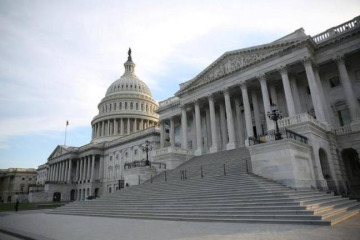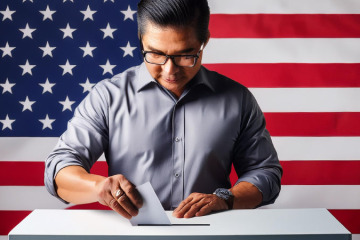By Andrian Putra
Washington DC, May 8, 2023 – Pew Research Center, a non-partisan think tank group, released an official study on Asian American identity in the United States. The report explores the experiences and opinions not only of Asian American adults overall, but also of the country’s six largest Asian origin groups: Chinese, Filipino, Indian, Japanese, Korean and Vietnamese Americans. It is based on the largest nationally representative survey of its kind to date focused on Asian Americans.
The survey detailed research into each ethnicity origin group, nativity, age, education level, income level and when they immigrated to the United States. This is the first ever research conducted by Pew Research Center utilizing multimode and address-based sample. The research was conducted from July 5, 2022 to January 27, 2023.
Pew Research did not include certain subgroups of Asian Americans or Native Hawaiians or Pacific Islanders as they wanted to conduct a separate study in the future on these subgroups.
The study reveal interesting facts on the differences between subgroups of Asian Americans. About half of Asian American adults describe themselves most often with their ethnic origin – Chinese, Chinese American, Filipino, Filipino American, and so on – it varies by immigration status and how long they have lived in the U.S. Those who immigrated to the U.S. are more likely to use their ethnic origin to describe themselves, whereas those born in the U.S. are less likely to do so. Also, more recent immigrants are more likely than immigrants who have been in the U.S. longer to use their ethnic origin identity.
Some interesting key differences by ethnicity:
– Japanese adults are the least likely of the largest Asian origin groups to say they are friends with other Asians;
– Vietnamese registered voters are the most likely out of the five largest Asian origin groups to identify as Republican or lean that way;
– Indian adults are more likely than those in the other five largest Asian origin groups to use their ethnic identity (Indian) without the addition of American to describe themselves.
However, there are shared experiences of being Asian Americans in the U.S. regardless of group origin, according to the survey.
– A majority of U.S. Asian adults say most people would describe them as Asian reflecting that they feel that others see them as a single group – as Asian.
– Around two-thirds say it’s extremely or very important to have a national leader who advances the concerns of the Asian community in the U.S. And a majority feel connected to other Asians and say that what happens to other Asians in the U.S. affects their own lives at least some.
– About three-in-ten Asian adults who were born in the U.S. also have the shared experience of hiding a part of their heritage from people who are not Asian, sometimes out of fear of being bullied or teased.
Amongst the highlights of the survey reveals:
– 52% say they most often use ethnic labels that reflect their heritage and family roots, either alone or together with “American,” to describe themselves. Chinese or Chinese American, Filipino or Filipino American, and Indian or Indian American are examples of these variations.
– There are other ways in which Asians living in the U.S. describe their identity. About half (51%) of Asian adults say they use American on its own (10%), together with their ethnicity (25%) or together with “Asian” as Asian American (16%) when describing their identity, highlighting their links to the U.S.
– Asian adults see more cultural differences than commonalities across their group as well. When asked to choose between two statements – that Asians in the U.S. share a common culture, or that Asians in the U.S. have many different cultures – nearly all (90%) say U.S. Asians have many different cultures. Just 9% say Asians living in the U.S. share a common culture. This view is widely held across many demographic groups among Asian Americans, according to the survey.
– Asian adults in the U.S. also feel connected with other Asian Americans. About six-in-ten (59%) say that what happens to Asians in the U.S. affects their own lives, at least to some extent.2 And about two-thirds (68%) of Asian Americans say it is extremely or very important to have a national leader advocating for the concerns and needs of the Asian population in the U.S.
– About 34% of Asian Americans are the U.S.-born children of immigrant parents, and another 14% are of third or higher generation (meaning their parents were born in the U.S. as well), according to a Pew Research Center.
– Overall, Asian Americans and the general U.S. population share similar views of what it means to be American. Nearly all Asian adults and U.S. adults say that accepting people of diverse racial and religious backgrounds (94% and 91%), believing in individual freedoms (92% and 94%) and respecting U.S. political institutions and laws (89% and 87%) are important for being truly American.
– Most Asian adults among the largest ethnic origin groups say a national leader advancing the U.S. Asian community’s concerns is important. Roughly three-in-four Filipino (74%) and Chinese (73%) adults say it is very or extremely important to for the U.S. Asian community to have a national leader advancing its concerns. A majority of Vietnamese (69%), Korean (66%), Japanese (63%) and Indian adults (62%) says the same.
View the complete Pew Search Center report: https://www.pewresearch.org/race-ethnicity/2023/05/08/diverse-cultures-and-shared-experiences-shape-asian-american-identities/











